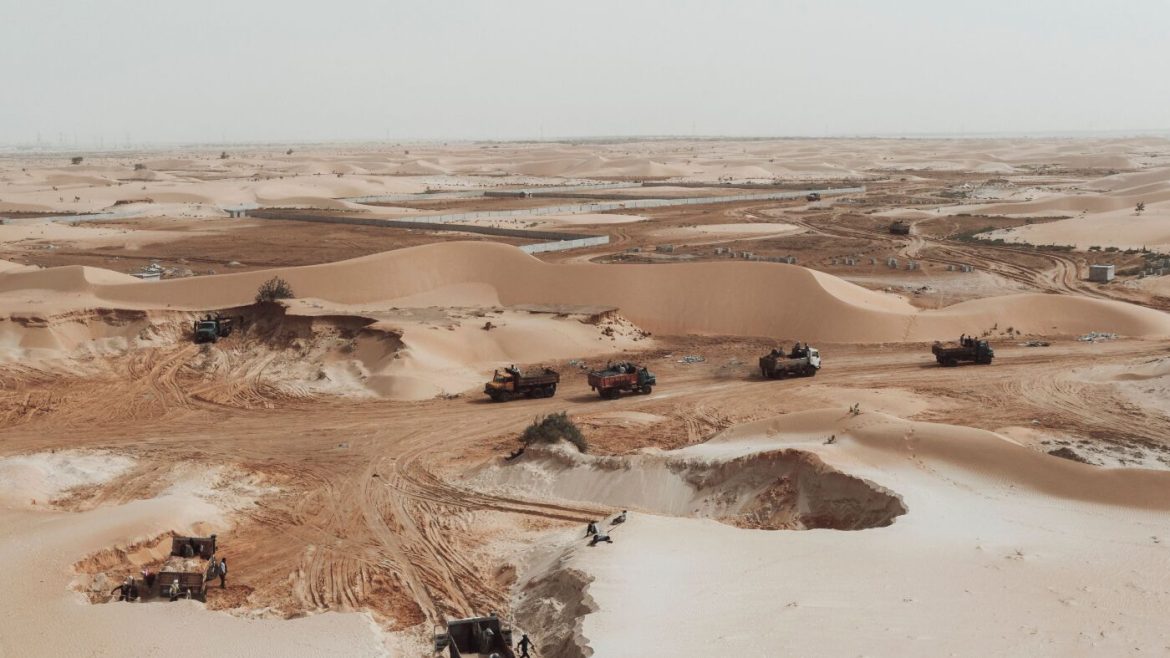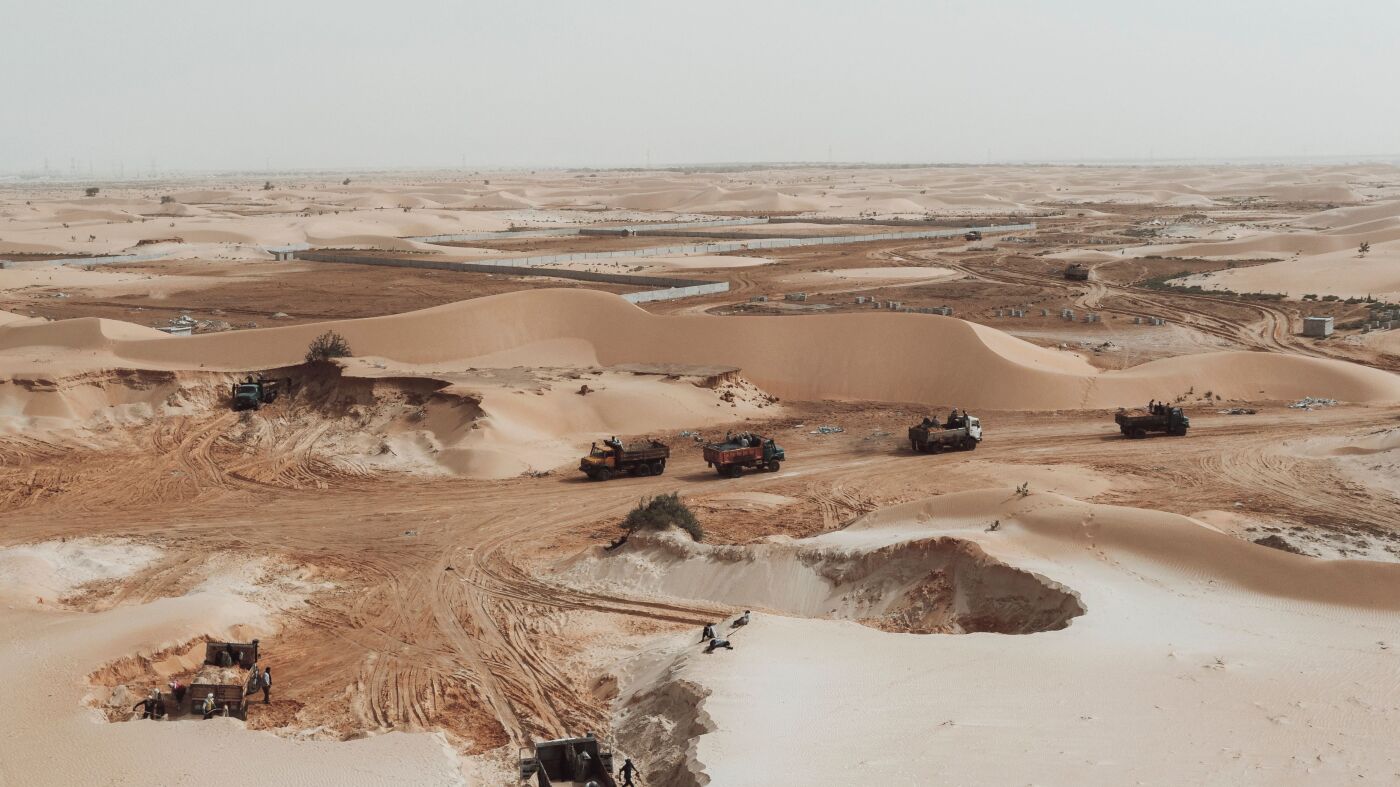Donald Trump’s decision to host the leaders of Gabon, Guinea-Bissau, Liberia, Mauritania, and Senegal at the White House has sparked considerable discussion. While the official line emphasizes “commercial opportunities,” a deeper dive reveals a complex web of motivations and potential implications for both the United States and the African continent. This meeting, though framed as a business-oriented gathering, carries significant geopolitical, security, and diplomatic undertones that warrant closer examination.
The Trump administration’s emphasis on commercial opportunities aligns with its broader policy shift toward transactional diplomacy. This approach prioritizes trade and investment over traditional aid-based relationships, reflecting a belief that economic engagement can foster stability and growth. The White House has highlighted Africa’s untapped potential, positioning the continent as a key market for American businesses. This narrative also serves as a counter to China’s growing influence in Africa, where Beijing has invested heavily in infrastructure and resource extraction. By positioning the United States as a viable alternative, the Trump administration seeks to redefine its role in Africa, moving away from the perception of being a mere aid provider to a strategic economic partner.
However, the meeting’s agenda extends beyond mere commerce. The five invited nations are strategically located along Africa’s Atlantic coast, a region of critical importance for global trade and security. This positioning provides access to vital shipping lanes and potential hubs for trade and investment. Engaging with these countries could be part of a broader strategy to secure U.S. interests in the region and counter China’s expanding footprint. The meeting may also serve as a signal to China and other global powers that the United States remains committed to engaging with Africa, albeit on its own terms. This geopolitical maneuvering underscores the broader stakes of the meeting, which go beyond immediate economic gains.
Security concerns are another likely topic of discussion. Several of the invited nations face significant security challenges, including terrorism, piracy, and cross-border crime. Strengthening security cooperation with these countries could help the United States address these threats and protect its own interests in the region. Discussions may revolve around providing military assistance, intelligence sharing, and joint training exercises. For the African leaders, this meeting offers an opportunity to present themselves as important and legitimate players on the international stage. A visit to the White House can bolster their domestic standing and enhance their credibility with international investors and partners. This exposure can be particularly beneficial for countries seeking to attract foreign investment and promote economic development.
The selection of these five nations raises questions about the criteria used by the Trump administration. While they share a coastal location, they differ significantly in terms of political systems, economic development, and social structures. Several factors may have influenced the selection process. These countries may be perceived as being more aligned with U.S. foreign policy objectives, such as their voting record at the United Nations or their willingness to cooperate on security issues. Additionally, they possess untapped natural resources that may be of interest to American companies, including oil, gas, minerals, or agricultural products. Engaging with these countries could provide American businesses with access to these resources and help diversify their supply chains. Compared to some other countries in the region, these five nations may be seen as having relatively stable political and economic environments, making them more attractive to foreign investors and partners.
Despite the potential benefits, the meeting faces several challenges and criticisms. Inviting only five out of 54 African nations could be seen as divisive and create resentment among those excluded. This could undermine U.S. efforts to build strong relationships with the continent as a whole. The emphasis on commercial opportunities could be interpreted as a narrow and self-serving approach to U.S.-Africa relations. Critics may argue that the United States should also prioritize issues such as democracy, human rights, and sustainable development. The meeting takes place against a backdrop of significant cuts to U.S. foreign aid, which could undermine the credibility of the administration’s commitment to Africa. African leaders may be skeptical of the United States’ intentions if it is simultaneously seeking to expand commercial ties while reducing its financial assistance. Trump’s past comments about Africa, including his use of disparaging language, could create a negative perception of the meeting and undermine its potential for success.
While the White House has been vague about the specific agenda, it is likely that the discussions will center on trade, investment, and security. The Trump administration is likely to push for trade agreements that benefit American companies, including reducing tariffs, removing regulatory barriers, and protecting intellectual property rights. The African leaders may seek to negotiate deals that promote their own economic development, such as increasing exports to the United States and attracting foreign investment. The United States may encourage American companies to invest in the five African nations, providing financial incentives such as tax breaks and loan guarantees. The African leaders may seek to attract investment in key sectors, such as infrastructure, energy, and agriculture. The United States may offer to provide military assistance and training to the five African nations, including supplying weapons, equipment, and technology. The African leaders may seek assistance in combating terrorism, piracy, and cross-border crime.
The meeting between President Trump and the five African leaders is a complex event with multiple layers of meaning. While the official focus is on commercial opportunities, strategic and security considerations are also likely to play a significant role. The selection of the five invited nations raises questions about the criteria used by the Trump administration, and the meeting faces several potential challenges and criticisms. Ultimately, the success of the meeting will depend on the ability of both sides to find common ground and build a mutually beneficial relationship. The true measure of this summit’s success will lie not in the photo ops or press releases, but in the long-term impact on U.S.-Africa relations. Will it usher in a new era of mutually beneficial partnerships based on trade and investment? Or will it be remembered as a fleeting encounter driven by narrow self-interests? Only time will tell. However, one thing is certain: the world will be watching closely to see what emerges from this meeting and how it shapes the future of U.S. engagement with the African continent.


